What do I think about atheism? Well, let me be honest with you. It was my privilege to be a student of probably the greatest atheist of his time and a friend of an even greater atheist. My doctoral supervisor was the late Sir Bernard Williams, generally described as the most brilliant man in Britain, a lapsed Catholic, and they fervent atheist. And I found my relationship with him was an object lesson in the collaborative pursuit of truth, because he never challenged my religious faith. He never ridiculed it. All he wanted was could I make it clear and could I make cogent. And the respect that he showed to me taught me that an atheist and religious believer can engage together in the collaborative pursuit of truth. As long as we don’t mock one another, misrepresent one another, or ridicule one another.
Now the great sceptic was the late Sir Isaiah Berlin. I came to know Sir Isaiah towards the end of his life and we became friends. He was very funny. The first thing he said to me when he visited us at our home was, “Chief Rabbi, don’t talk to me about religion. When it comes to God, I’m tone deaf.” And then he said to me, “What I don’t understand is how you, who studied philosophy at Cambridge and Oxford, can be a believer.” And I said, “Sir Isaiah, if it helps, think of me as a lapsed heretic.” “Quite understand,” he said.
Now he was really a secular Jew. And in 1997, I had published a book of political philosophy called The Politics of Hope, where I disagreed somewhat with Isaiah Berlin’s political philosophy. And I said to him, I’d be fascinated to hear his reactions. He said to me, “Send me the book and I’ll let you know.” So I sent him the book and heard nothing for several months.
So I phoned him at his home in Oxford and his wife, Lady Aline Berlin answered the phone. And she said, “Oh, Chief Rabbi, Isaiah has just been talking about you.” Now I am sure rabbis were not the normal subject of conversation at the Berlin dinner table. So I said, “In what context?” She said, “Oh, he’s just asked you to officiate at his funeral.” I said, “Don’t think about such things,” but obviously Isaiah knew. Four days later he died. And I did officiate at his funeral.
His biographer, Michael Ignatieff, came to see me and he asked me out of interest, how was it that Isaiah Berlin, a secular Jew, wanted a religious funeral to be conducted by a Chief Rabbi? And I replied, “Isaiah may not have been a believing Jew, but he was a loyal Jew.” And that is no small thing.
So it’s been my great privilege to know great atheists. And to know that, yes, the conversation between believer and atheist is, or can be, a respectful and constructive conversation. And I will always accept as a challenge from atheists all the examples of religion going wrong, of accepting the unacceptable, of seeking power, of practising intolerance. And actually I think that is the important role that atheists play in the contemporary world. They refuse to let religious organisations or leaders get away with sloppy thinking or acceptance of something as the will of God when clearly, God wants us to change that thing and transform the world. They challenge religion whenever it is a source of intolerance or hate. And in that respect, I like atheists and I feel enlarged by them.
But as for the angry atheists, the figures that we all know of, I call them our contemporary intellectual equivalent of road rage. Those guys, I think, are not the kind of atheist that I respect at all, because what they write about is a caricature of religion, not the real thing.
SHARE
More from JInsider
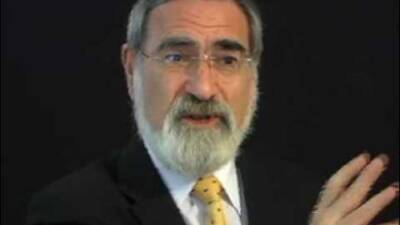
Rabbi Sacks on the Jewish Narrative
JInsider (March 2010)
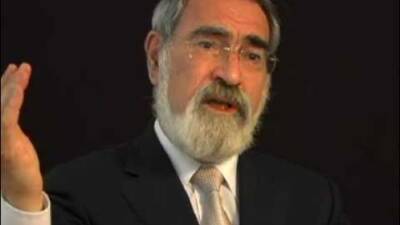
Rabbi Sacks on Future Tense Take Aways: Part 1
JInsider (March 2010)
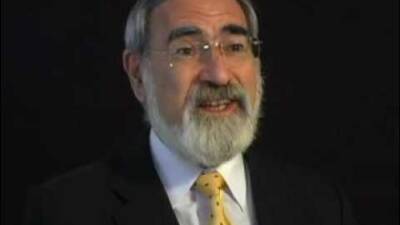
Rabbi Sacks on Future Tense Take Aways: 2
JInsider (March 2010)
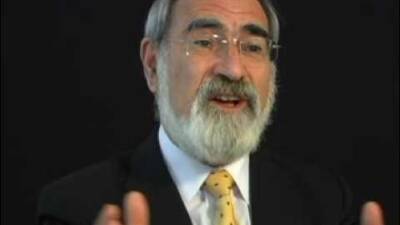
Rabbi Sacks on the Universal Jewish Story
JInsider (March 2010)
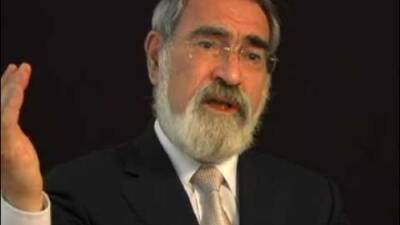
Rabbi Sacks on Eco-Judaism Roots
JInsider (March 2010)
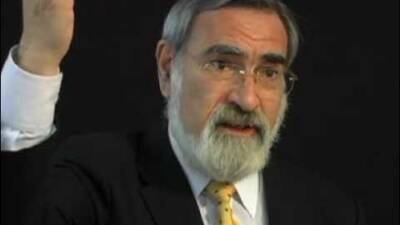
Rabbi Sacks on Peoplehood
JInsider (March 2010)
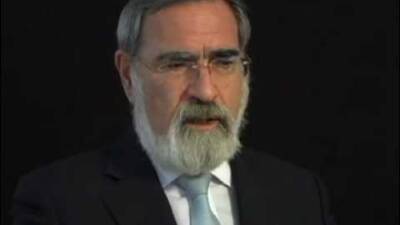
Rabbi Sacks on an Engaged Judaism
JInsider (March 2010)
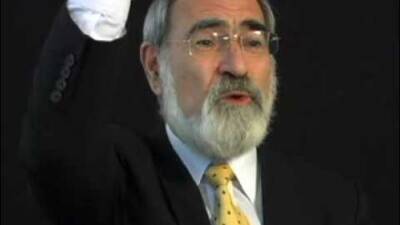
Rabbi Sacks on Charity Priorities
JInsider (March 2010)
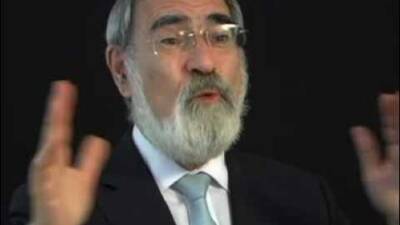
Rabbi Sacks on a Responsible Life
JInsider (March 2010)
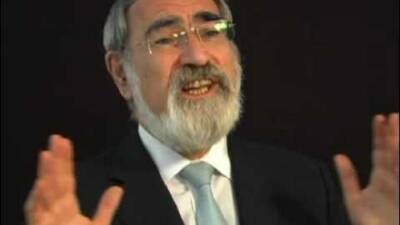
Rabbi Sacks on Reconciliation
JInsider (March 2010)
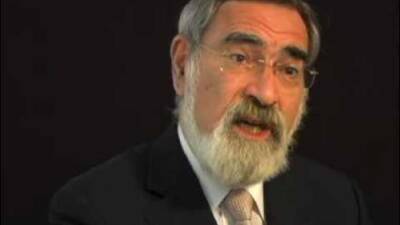
Rabbi Sacks on Community Conflict
JInsider (March 2010)
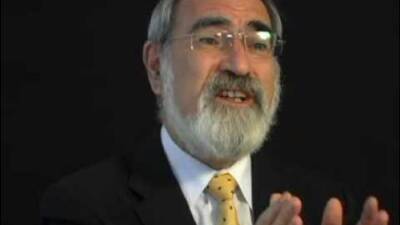
Rabbi Sacks on Particularism vs Universalism
JInsider (March 2010)
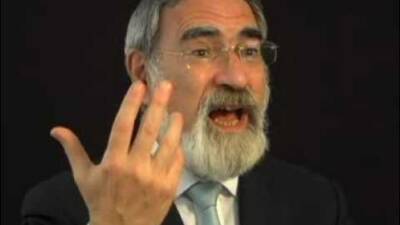
Rabbi Sacks on a Culture of Hope
JInsider (March 2010)
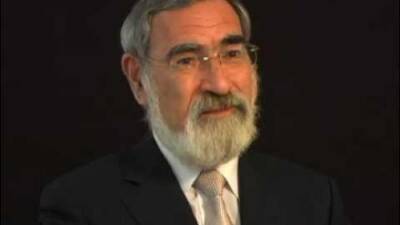
Rabbi Sacks on his Personal Hatikvah
JInsider (March 2010)
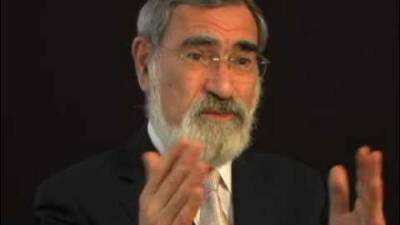
Rabbi Sacks on Israel and Jewish Society
JInsider (March 2010)
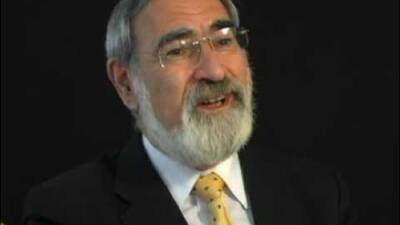
Rabbi Sacks on Torah in Today's World
JInsider (March 2010)
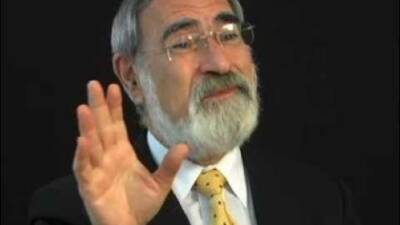
Rabbi Sacks on Prayer
JInsider (March 2010)
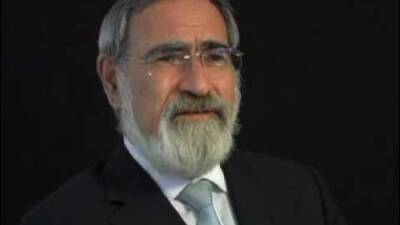
Rabbi Sacks on Indifference
JInsider (March 2010)
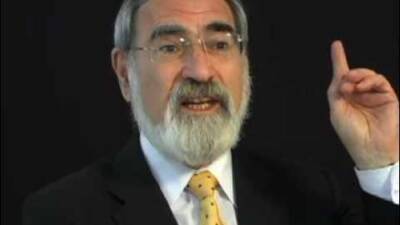
Rabbi Sacks on the Jewish Role in the World
JInsider (March 2010)
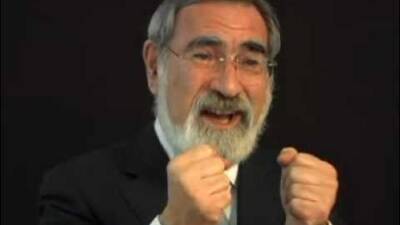
Rabbi Sacks on Torah and the Real World
JInsider (March 2010)
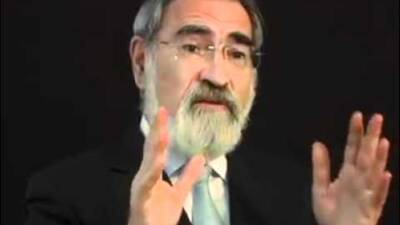
Rabbi Sacks on Free Market and Judaism
JInsider (March 2010)
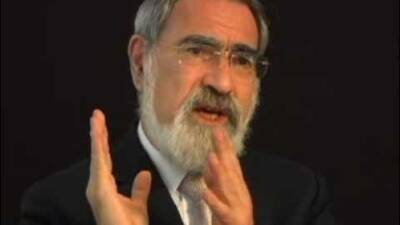
Rabbi Sacks on Antisemitism
JInsider (March 2010)
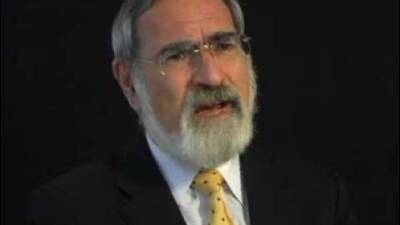
Rabbi Sacks on Future Tense
JInsider (March 2010)
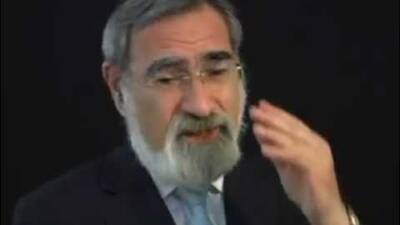
Rabbi Sacks on Love as Deed
JInsider (March 2010)
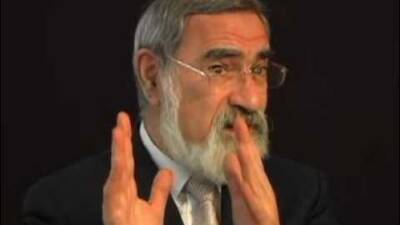
Rabbi Sacks on Combatting Antisemitism
JInsider (March 2010)
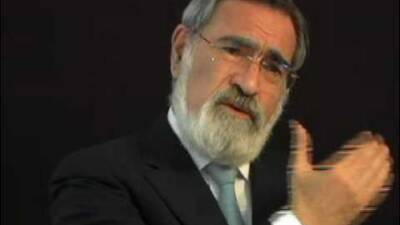
Rabbi Sacks on Material Loss
JInsider (March 2010)
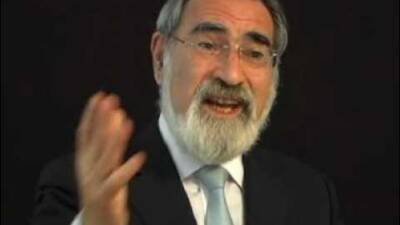
Rabbi Sacks on the Antidote to Materialism
JInsider (March 2010)
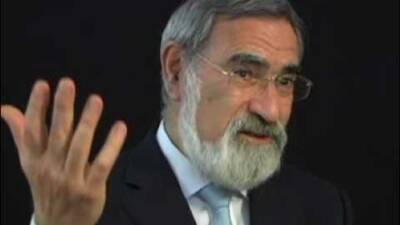
Rabbi Sacks on Parenting
JInsider (March 2010)
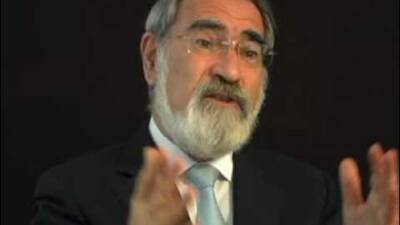
Rabbi Sacks on a Tzedakah Tale
JInsider (March 2010)
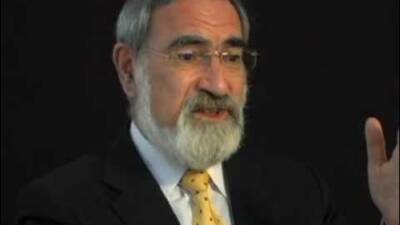
Rabbi Sacks on a Family Story
JInsider (March 2010)
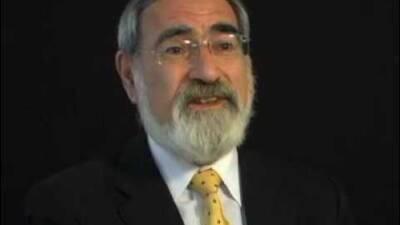
On the Internet and Judaism
JInsider (March 2010)
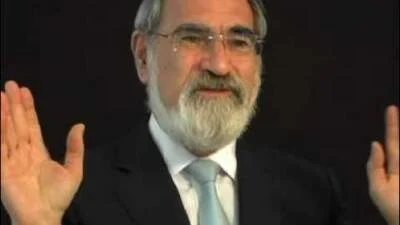
Rabbi Sacks on Plato's Ghost
JInsider (March 2010)
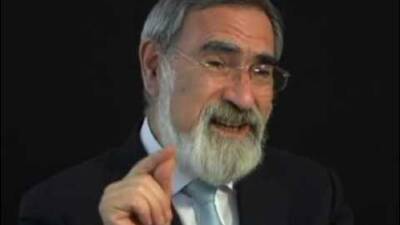
Rabbi Sacks on Optimism vs. Hope
JInsider (March 2010)
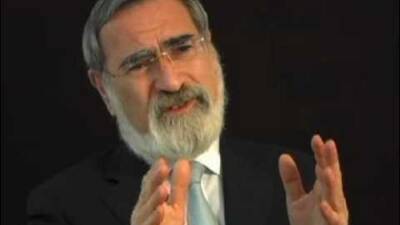
Rabbi Sacks on Victim Mentality
JInsider (March 2010)
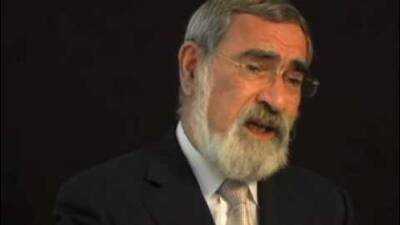
Rabbi Sacks on Jerusalem
JInsider (March 2010)
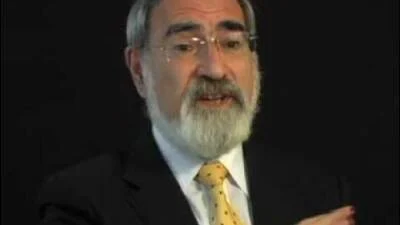
Rabbi Sacks on Advice for our Times
JInsider (March 2010)
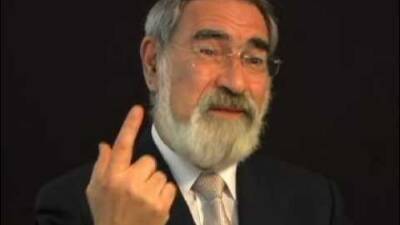
Rabbi Sacks on Fundamentalism
JInsider (March 2010)
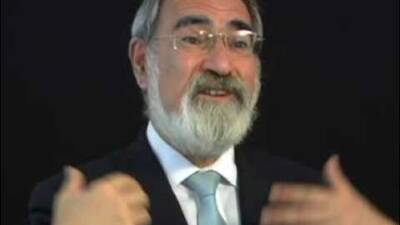
Rabbi Sacks on Time
JInsider (March 2010)
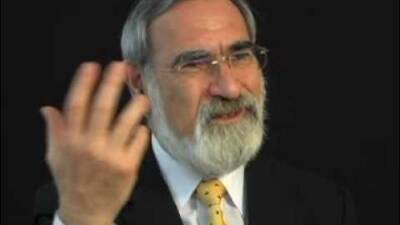
Rabbi Sacks on the Chosen People
JInsider (March 2010)
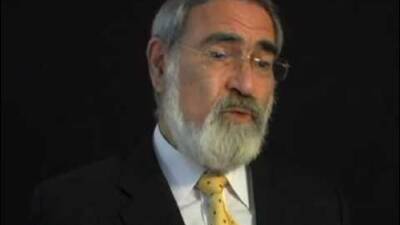
Rabbi Sacks on 21st Century Israel
JInsider (March 2010)
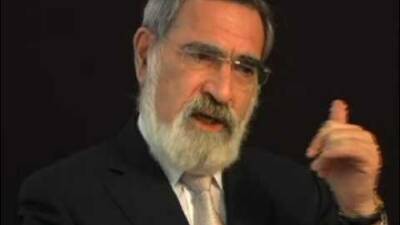
Rabbi Sacks on the Origins of Antisemitism
JInsider (March 2010)
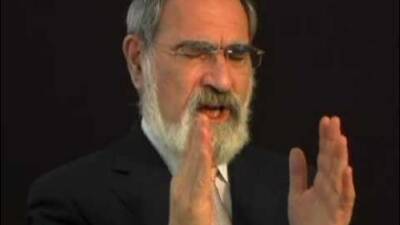
Rabbi Sacks on Understanding Jewish Exile
JInsider (March 2010)
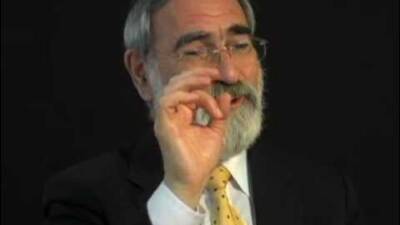
Rabbi Sacks on Anger
JInsider (March 2010)
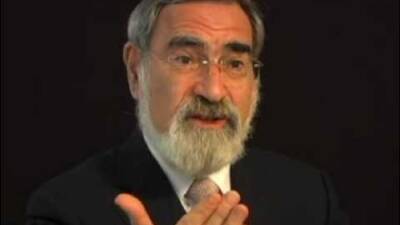
Rabbi Sacks on the Historical Evolution of Antisemitism
JInsider (March 2010)
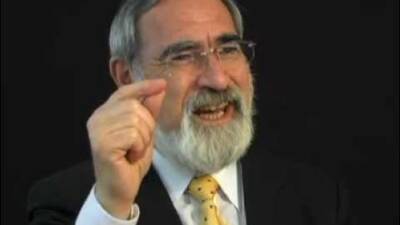
Rabbi Sacks on Interfaith Relations
JInsider (March 2010)
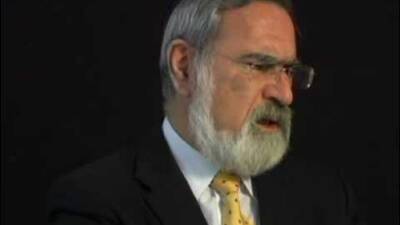
Rabbi Sacks on Coincidence and Providence
JInsider (March 2010)
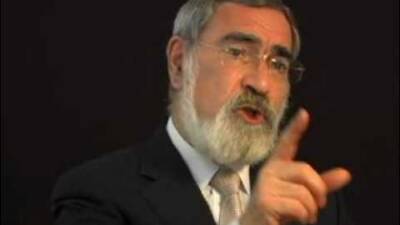
Rabbi Sacks on Free Will
JInsider (March 2010)
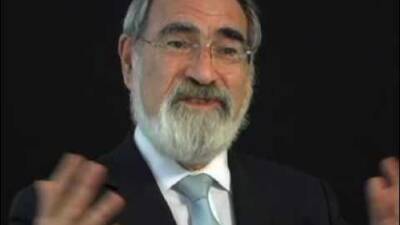
Rabbi Sacks on Family and Marriage
JInsider (March 2010)
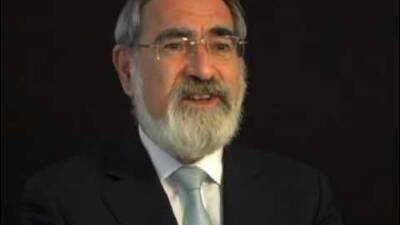
Rabbi Sacks on Tzedakah Defined
JInsider (March 2010)
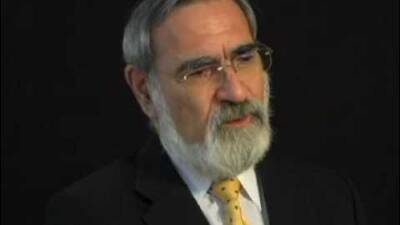
Rabbi Sacks on Daily Life
JInsider (March 2010)
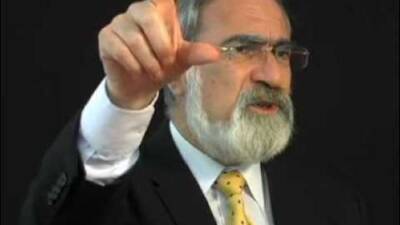
Rabbi Sacks on Being Jewish
JInsider (March 2010)
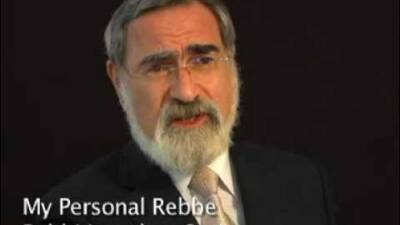
Rabbi Sacks on his Personal Rebbe, Rabbi Nachum Rabinovitch
JInsider (March 2010)
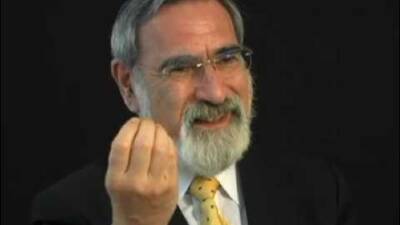
Rabbi Sacks on Connecting to God
JInsider (March 2010)
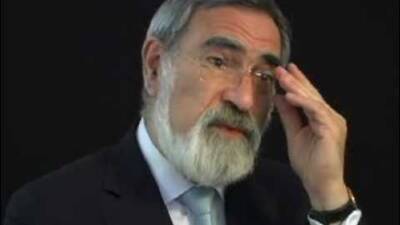
Rabbi Sacks on God and Evil
JInsider (March 2010)
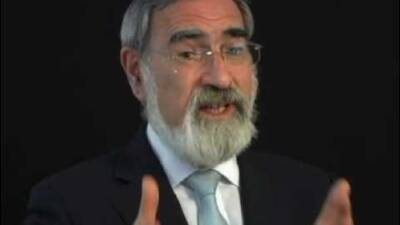
Rabbi Sacks on Doubt
Jinsider (March 2010)
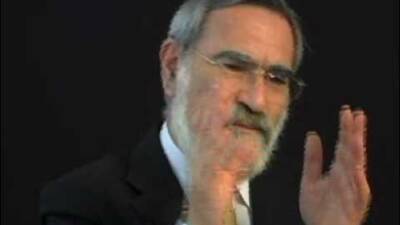
On Tikkun Olam
JInsider (March 2010)
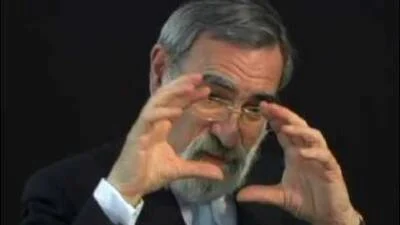
Rabbi Sacks on a Response to Atheism
JInsider (March 2010)
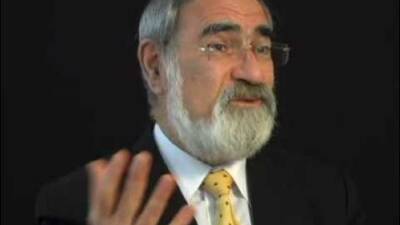
Rabbi Sacks on Finding Purpose
JInsider (March 2010)
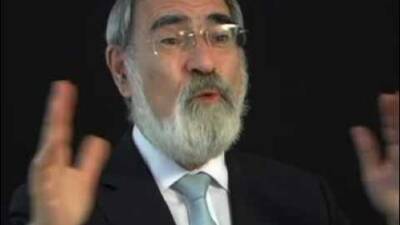
Rabbi Sacks on a Responsible Life - Example
JInsider (March 2010)
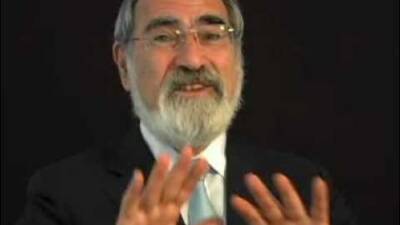
Rabbi Sacks on the Dignity of Difference - Part 2
JInsider (March 2010)
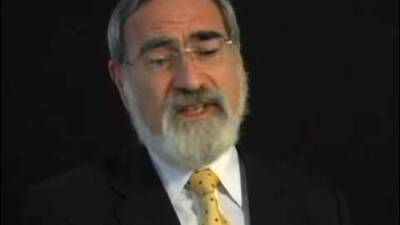
Rabbi Sacks on the Dignity of Difference - Part 1
JInsider (March 2010)
